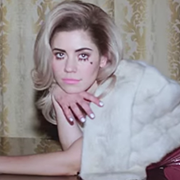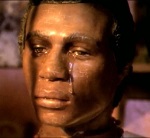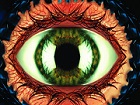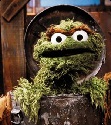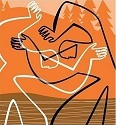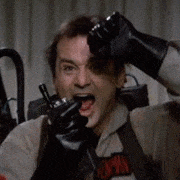|
I think this film is to Law and Order what Twin Peaks is to daytime soaps. Nick's dopey Law and Order namedrop is one of the best bits. The Homeless City is also pretty funny.
|
|
|
|

|
| # ? Apr 27, 2024 11:45 |
|
DrVenkman posted:Thing is, I love the movie, but I can't agree with that because the idea of a femme-fatale who outsmarts those around her isn't exactly new. I mean, for a time Amy basically turns into Linda Florentino from THE LAST SEDUCTION. That article only works if you ignore a lot of other movies that have done the same thing. The Last Seduction has been on the tip of my tongue as a comparison. That's the Amy character done right.
|
|
|
|
LividLiquid posted:all of the other women in the film are fully-realized characters. All of them? I think the best female character in the film is Greta(? I think that was the name, the one who robs Amy), she's obviously multifaceted, and completely believable. The sister is fine, but she doesn't get a whole lot to do despite her screen time, she's there for Afflek to bounce his thoughts off of. The detective is the obvious choice but if you replaced her with a male actor I don't think you'd have to change a single line... not that that is inherently a bad way to write a female character, especially in that role, but its neutral territory outside of the subtext of the FBI scene towards the end. Then you have a whole slew of lovely one dimensional female characters, with very different roles but all very dumb: the Nancy Grace stand-in, the college girlfriend, the groupie type that takes a selfie with Afflek, the idiot neighbor, etc. Besides that there's just Amy's mother who is simply required to stand around and seem cold and rich.
|
|
|
|
The FBI scene is massively important though, even if the officer's gender didn't matter until that point it very much mattered to the subtext then. I agree that a lot of the characters you listed were just loud, brash cliches but I found them all (intentionally) funny rather than flawed writing.
|
|
|
|
Sir Kodiak posted:Fun movie. In regards to Amy checking off the MRA-fears list, I took this as a conscious (both for Amy the character and the writer) inversion of her "Cool Girl" act. She knows exactly what immature and self-centered guys want out of women, she's willing to provide it if they live up to what she perceives as their part of the bargain, and she inflicts exactly what they fear the most once they don't. She has accurately read a misogynistic culture and can switch from a chili-dog loving blowjob nymph who walks around in lingerie to the "psycho bitch" who steals sperm to get pregnant and fakes a rape accusation. Totally agree with this reading of the film. I get where the accusations of misogyny are coming from but really, my reading of the film was a straight-up revenge story on "nice guys" - and not just Affleck, Neil Patrick Harris was doing some creepy, creepy poo poo in this movie. That cool girl monologue in Gone Girl is probably one of the most interesting things about gender I've seen in a Hollywood movie in recent years. I'm not a big sequel/prequel fantasizer but I'm REALLY curious about the backstory with NPH's and Pike's characters. Given the scorched earth way she ended relationships, I'm so curious as to how he kept carrying a torch for her. Actually now that I think about it, maybe she did do something like that, and it's an allusion to the end of how Affleck ends up wanting to be with her. Man, I have to think about this some more maybe.
|
|
|
|
mr. unhsib posted:I'm not a big sequel/prequel fantasizer but I'm REALLY curious about the backstory with NPH's and Pike's characters. Given the scorched earth way she ended relationships, I'm so curious as to how he kept carrying a torch for her. One thing from the book that I don't believe they covered in the movie: the story about Desi attempting suicide over Amy was yet another thing made up by Amy
|
|
|
|
Also I was thinking about it, and but Gone Girl, The Girl with the Dragon Tattoo, and The Social Network make for a really interesting trilogy of Fincher movies. All 3 are heavily centered around the consumption/production of some other kind of media (the diary, the crime scene evidence/photos, and computer code respectively) and all 3 have some sort of commentary about gender. Man, I know what I'm going to be doing the next time I'm on a super long flight  Hope a kid's not sitting next to me... Hope a kid's not sitting next to me...
|
|
|
|
They also all have a lot to do with entrapment, the hunt for success, and the question of personality in the media vs "the real you".
|
|
|
|
Also the movie passes the Bechdel test so it can't be sexist.
|
|
|
|
LividLiquid posted:If anything, I'd worry more about the film's ableist leanings. The antagonist has a medical problem so stigmatized that Nick will gladly spend the rest of his life playing games with her and fearing his own brutal murder instead of suggesting, "Uh, hey. Let's go see a loving doctor." This is how stigmatized mental illness is. Amy would almost certainly never willingly go to a mental clinic, and it's not like they can prove that she's crazy anymore.
|
|
|
|
Bip Roberts posted:Also the movie passes the Bechdel test so it can't be sexist. Does it, though? When Amy and the trailer park girl are talking, it's about what guy beat her up and then about the harmless guy living next door. What other conversations between two women are there?
|
|
|
|
It doesn't really matter. The Bechdel is more a measure of every movie released in a year than each individual movie. "This movie didn't pass the Bechdel test" isn't nearly as damning as "Only three Hollywood movies this year passed the Bechdel test."
|
|
|
|
Liam Emsa posted:Does it, though? When Amy and the trailer park girl are talking, it's about what guy beat her up and then about the harmless guy living next door. What other conversations between two women are there? They were joking.
|
|
|
|
Liam Emsa posted:Does it, though? When Amy and the trailer park girl are talking, it's about what guy beat her up and then about the harmless guy living next door. What other conversations between two women are there? Amy and the trailer park girl talk about the news reports of Amy for a good while among other topics. Anyway, I feel like we're stuck in this endless conversation about whether the film is misogynist or not (I don't think it is) that we're overlooking a lot of other elements of the film. The part that struck me the most was the portrayal of media. The first hour gave me vibes of Camus' The Stranger. Nick is a guy who is unfairly vilified in the media because he is unable to show the "proper" emotions. He doesn't feel remorse for his wife's disappearance, his discrepancies incriminate him despite being completely circumstantial. He doesn't act how the spouse of a victim is supposed to and therefore he is guilty in the eyes of the public. Of course he's not a good person, the conversation has covered that. But he's not a murderer. And he certainly doesn't deserve to be treated like one, as lovely of a guy as he is. It reminded me of the Casey Anthony trial, among other high profile cases. I'm in no position to say whether Anthony actually murdered her daughter or not, but in the eyes of the government she is innocent. But the media portrayed her as guilty long before the verdict. In the public eye, she WAS a murderer. How do we all know this is true? Because the media told us it was. It guided our perception, just as it guides the perception of Nick. We live in a world of Trial by Media, where guilt is determined long before the trial begins. edit: Another thing I like was Fincher seemed to pull a page from Hitchcock's Stage Fright. Stage Fright is infamous for Hitchcock "cheating," by showing us a false past in a lie told by the villain. Fincher does the same here, giving us a fake flashback of Nick pushing Amy into the banister. This furthers the media commentary. Even the film itself lies to us in order to convince us that Nick is an abuser and a potential murderer. Also, did anyone else draw parallels between this and Soderbergh's Side Effects? TrixRabbi fucked around with this message at 06:51 on Oct 7, 2014 |
|
|
|
Pirate Jet posted:They were joking. Which isn't ironic in the least since the Bechdel test was already a sardonic joke in a comic strip that people took way too seriously.
|
|
|
|
I always like to point out that Ilsa, She Wolf of the SS passes the Bechdel Test, but Jeanne Dielman does not.
|
|
|
|
I saw this last night with my girlfriend. I suggested watching They Came Together afterwards as a pallet cleanser but she declined. I was excited to see the movie as I read the book a month or so ago and I like Fincher's stuff and was curious to see how they would film it. Part of my enjoyment of the book (and the movie) is not because I am a closeted misogynist but because I love watching shows with sociopaths. I doubt characters like Lector or Frank Underwood get such slack but whatever. I try not base my enjoyment on movies by thinking "I wonder how a bunch of idiots on the internet who love to post hateful comments will react to this film". Yes Amy is villainous as gently caress, and her scheme is absurdly insane, but that feeds into the story of being in the genre of thriller where the baddy always has a convoluted scheme. I did find that the movie did leave out a bit from the book that might have helped it out. Stuff like Amy didn't hate men, but rather hated anyone that got in her way, as shown by that time she destroyed her best friend's life because her best friend got more attention than her. As for Desi, the book does a much better job at showing that he was always obsessed with Amy and it was more than just a sexual attraction that pulled her towards him. In fact in the book it is mentioned that Amy resembles a younger version of Desi's mom, who he still lives with, so feel free to go Freudian on that. Desi did make Amy pretty much a prisoner, but in his mind he was providing everything Amy could have wanted. He wasn't too interested in sleeping with her but more in making sure she turned into the ideal that he fell in love with in school. He is more similar to the idiot male's ideal of the perfect naive innocent woman than anything else, and Amy uses this to break free from him in the end. As for the film itself, I thought the performances were spot on, and Afflecks casting was inspired as he really seem to embody the easy going good looking doofus. The score was superb but that was to be expected by Reznor and I thought the movie was really good in a trashy, thriller kind of way.
|
|
|
|
Here's a good article in GQ about the misogyny of Gone Girl: http://www.gq.com/blogs/the-feed/2014/10/gone-girls-girl-problem.html?mbid=social_retweet It doesn't exactly blame the work exactly but sort of bemoans a hosed up culture that will use it to give credence to a lot of misogynistic lies. It's a fair point - also nothing new to the consumption of media (how many fuckheads did you know in college with a Tony Montana poster?)
|
|
|
|
Madkal posted:I did find that the movie did leave out a bit from the book that might have helped it out. Stuff like Amy didn't hate men, but rather hated anyone that got in her way, as shown by that time she destroyed her best friend's life because her best friend got more attention than her. Nah, Amy spitting into the hick girl's drink was more than enough for that, she's just an incredibly spiteful person.
|
|
|
|
Yoshifan823 posted:Nah, Amy spitting into the hick girl's drink was more than enough for that, she's just an incredibly spiteful person. And I love that, in doing so, she immediately proves the hick girl's perception of her to be right.
|
|
|
|
TrixRabbi posted:Another thing I like was Fincher seemed to pull a page from Hitchcock's Stage Fright. Stage Fright is infamous for Hitchcock "cheating," by showing us a false past in a lie told by the villain. Fincher does the same here, giving us a fake flashback of Nick pushing Amy into the banister. This furthers the media commentary. Even the film itself lies to us in order to convince us that Nick is an abuser and a potential murderer. TrixRabbi posted:I always like to point out that Ilsa, She Wolf of the SS passes the Bechdel Test, but Jeanne Dielman does not. A movie not passing it does not mean it is a bad movie in any way. Looking at how Hollywood releases so few films that pass it is what's bad.
|
|
|
|
LividLiquid posted:I was under the impression that the repeat performance in the ending meant that this actually happened. I thought Amy specifically mentioned that she made up the abuse. However, yeah, the ending is kind of shocking and unexpected and does reveal that he's the type of person who really would do that. And I'm well aware of how the Bechdel Test is meant to work. It's just using it as an argument against Gone Girl is null (especially since it passes) because you can have horribly sexist films that pass and feminist triumphs that fail.
|
|
|
|
Yeah I'm pretty sure during the Cool Girls monologue she mentioned inventing the abuse. By the end she's made Nick into the monster she needed him to be and his shoving her really sends that home.
|
|
|
|
I've got a pretty brief understanding of the book, how does the film change things?
|
|
|
|
|
TrixRabbi posted:And I'm well aware of how the Bechdel Test is meant to work. It's just using it as an argument against Gone Girl is null (especially since it passes) because you can have horribly sexist films that pass and feminist triumphs that fail. I also stand corrected on my other point.
|
|
|
|
As a book-reader who watched this last night, I really enjoyed it. To add my two cents on what everyone is talking about (sorry for ugly black text): I think there's a difference between a character being an MRA/misogynist's nightmare and the film itself being misogynist. I do think Fincher and Flynn knew very well what they were doing when they created the character: a female antagonist who leverages the tools made available to her gender is simply going to embody those r/redpill fears, and they were comfortable with that. I'm comfortable with it, too -- to think the film itself is misogynist is to think that the character of Amy serves as some sort of warning about all women, and if you think that then I just don't know what to say. The film is about setting up stereotypes and layering them on top of each other -- even after penetrating the surface of one stereotype, you're bound to find another one underneath, almost supporting it (remember all the language about cracking open a skull to see what's really inside; it turns out, it would take a while to dig down to someone's "real" self). This is easiest to see with Amy; she portrayed herself to the police and the public as one stereotype -- the innocent, helpless, scared blonde suburban woman -- to hide the "MRA nightmare" stereotype underneath, which only the film audience sees. You could say the buck stops there -- that this is her "true," deepest self -- if only that stereotype wasn't broken by that trailer park couple, and by whatever loving impulse drove her to return to Nick when she saw him on TV. These moments, as well as the "cool girl" speech and her few honest moments alone with Nick, are the "deepest" levels of Amy we see. Nick is also playing with facades and stereotypes, he's just worse at it because he's dumber. The "easy-going chill dude with a flannel" was eventually revealed to be poorly hiding the "English teacher who has an affair with a student," which is yet another facade because we know he doesn't really care about her. (Thinking back, do we even see Nick alone with his thoughts, outside of the opening and closing scenes? I think he might ALWAYS have a mask on for others throughout the film, making him even more of an enigma than Amy). He tries to play the concerned husband card, kind of, but he's so used to playing the chill dude that he makes constant errors (the smile, the selfie). It isn't until the super well-cast Tanner Bolt/Tyler Perry, master of the stereotype, teaches him -- and he plays his part so well that he even sways Amy to his side. Together, they can enact the loving, reunited couple cliche -- which they both want to do, and which the public wants them to do. The reason it all works (on characters within the film, or on the audience) is because it's just so easy to deal with stereotypes; when we're presented with the simplest explanation, we want to close the case. "Amy is just a misogynist trope, kthx hth." Yeah she is the PERFECT misogynist trope, but don't you think (like the crime scene) that it's a little too perfect? "Villain Amy" is obviously behind pretty much everything--but if the film places some sort of blame, it places it more squarely on those who unquestionably accept easy answers than on crazy hos. PriorMarcus posted:I've got a pretty brief understanding of the book, how does the film change things? I read the book a few months ago, so I can't recollect everything, but More of Amy's past is revealed, showing that she's terrorized female friends through social means. More diary entries, including a memorable one that goes into "dancing monkeys" -- men who do whatever their wives want, and are (supposedly) the object of Nick and Amy's derision. More stuff in the mall. In the book, Tanner Bolt is a white guy with a black wife who is the one that actually trains Nick for the interview. Amy's story to the FBI/local detectives seems more solid in the book than in the movie, she had more detailed explanations for everything. And I don't think the very last scene with Nick looking at Amy's skull was in the book. Jay-V fucked around with this message at 23:51 on Oct 7, 2014 |
|
|
|
mr. unhsib posted:It doesn't exactly blame the work exactly but sort of bemoans a hosed up culture that will use it to give credence to a lot of misogynistic lies. It's a fair point - also nothing new to the consumption of media (how many fuckheads did you know in college with a Tony Montana poster?) Lindy West posted:I wish we could have conversations about how to process media responsibly, how to balance escapism and critical thought, without being dismissed as Tipper Gore wet-blanket killjoy turds. This is not a 'fair point.' This is a typical and unenlightening misdirection from the author having to perform exactly the kinds of critical engagement that she is complaining she can't engage in without harassment. "I wish that stories about bad women could just be stories" is flatly contradictory of wanting critical engagement without being dismissed by sexists, because wanting something to "just" be a story implies that you don't actually want to engage in discussions of cultural bigotry, but have an excuse to not think about it. She's tacitly legitimizing the MRA perspective in order to construct a flimsy, back door critique that conveniently obfuscates the obvious point that she brings up: that sadistic villains are awesome and that it makes no difference if the villain is a man or woman, except to sexists. She is clearly just as uncomfortable with a all-powerful female Deviless as an MRA. She is talking down to ideas that she is having and then pretending that she's not having them. That's not a fair point, it's bad criticism. Why is Lindy West trying to change the discussion from analyzing gender politics to complaining that we can't discuss them? It's not because she's afraid of disapproval; it's because she knows other women are afraid of disapproval. She knows they don't want to be MRA nightmares, but their economic stress minimum of liberal cultural approval. Fincher and Flynn's position is that we should admire the MRA nightmare, because she's loving awesome. Tyler Perry, the misandry-specialist defense attorney, literally tells us that's what we should do.
|
|
|
|
Did anyone notice the ice cream brand in the fridge was "Dreyer's?"
|
|
|
|
If they'd included her other character-destroying escapades from the book it would have made her a better character. I wonder why they skipped them? It wouldn't have taken much.
|
|
|
Taear posted:If they'd included her other character-destroying escapades from the book it would have made her a better character. I wonder why they skipped them? It wouldn't have taken much. Who else does she destroy aside from the two guys and her friend? In fact, I'd kind of like more details about the friend. I really liked this film, but it felt like something was missing from it, ironically, so I'm trying to put my finger on what and if the book holds the solution.
|
|
|
|
|
TrixRabbi posted:Did anyone notice the ice cream brand in the fridge was "Dreyer's?" Edy's ice cream is marketed as Dreyer's in some parts of the country, like how Hardee's and Carl's Jr. are the same fast food chain with two different names. EDIT: I know it's weird because of Breyer's.
|
|
|
|
Taear posted:If they'd included her other character-destroying escapades from the book it would have made her a better character. On the other hand, by giving us just little enough information, they make her a total character. Which is to say, there is no Amazing Amy.
|
|
|
|
PriorMarcus posted:Who else does she destroy aside from the two guys and her friend? In fact, I'd kind of like more details about the friend. From what I remember about the friend thing, and I am going from shoddy memory here, She had a friend at school and Amy was very much the alpha of the two but every now and again the friend got more attention than Amy for some reason. I think there was some guy at school Amy was interested in but he asked the friend out and Amy got very pissed off. Amy started spreading rumour around school about how her friend was obsessed with Amy and was borderline stalkerish towards her. She told her parents how her friend wanted to kill her and assume her place as the new Amazing Amy. The whole thing pretty much establishes Amy as extremely competitive and petty, and pretty much willing to destroy others to get her way.
|
|
|
|
Before getting elbow-deep in the misogyny thing I want to say my favorite moments of Amy characterization were when she was watching the news story with Greta and watching the interview with Desi. In those scenes she seemed to lose all the cold, calculating self-awareness and revert to a state of total childhood naiveté. And props to Rosamund Pike for totally selling that, mostly with her eyes, but also right down the way she eats food like a kid watching cartoons. I also don't think it's coincidence that those two bits, plus her scorn at Andie when she comes forward, make up her most overtly emotional moments and are all triggered by the television. It plays nicely with the way her various bogus identities are pieced together from cultural norms and perceptions; she may not connect at all with people around her but she certainly does with the media circus. Is the film misogynist? I get where people are coming from and I was aware of those tropes being used while I was watching. But in the end I did not find my own relationship to Amy as a viewer to be angry or hateful, I don't think that was the authorial intent from either Fincher or Flynn, nor do I think that will be the mainstream reaction of audiences. I'd basically equate it to the Wolf of Wall Street. Some people will surge with enthusiasm when Nick slams Amy against the wall at the end, just as some probably did when Belfort slapped around his wife, but those people are horribly broken already and it takes a lot of sick projection onto the film to actually have that reaction. For the rest of us this is a pretty engaging, well-shot, well-scored thriller with some nice thematic depth on truth, identity, media, and marriage. Eggnogium fucked around with this message at 07:53 on Oct 8, 2014 |
|
|
|
I saw this movie and thought it was good. I don't get why people think its misogynist, unless they think an obvious psychopath is supposed to represent all women?
|
|
|
|
Pycckuu posted:I saw this movie and thought it was good. I don't get why people think its misogynist, unless they think an obvious psychopath is supposed to represent all women? It's not they who think she represents all women. It's other people, you see?
|
|
|
|
Pycckuu posted:I saw this movie and thought it was good. I don't get why people think its misogynist, unless they think an obvious psychopath is supposed to represent all women? :There's a whole load of spoilers below: Because it's problematic when she plays into very real misogynist fears. When you get that close to the line it's easy for people to think you've gone too far. Personally, I have no problem with what the movie does, but I can certainly see why people would. In defence of the naysayers, the movie and the character revels in those tropes, but to no real end. Take the scene with the ex, it's pretty clear that the movie wants you to know that Amy lied about the sexual assault. But what does that really serve? We already know that Amy is dishonest because we're witnessing it. It's much better served in the scene with Desi. Nick confronts him and says this is what Amy said. However NPH is ambiguous in his response. He doesn't answer it, but he's clearly thinking about it. It leaves the door open to interpretation. I think that Amy contorts herself to be the thing that men fear the most. Just as she contorts herself to be the girlfriend that men want the most. It's a comment on what we do to please our partners, and how that has a flipside to it. I said before but I think ultimately the movie is about just being honest. If Amy and Nick weren't lying about who they were from the start then things wouldn't have been as twisted as they ended up being. Which is why the scene with the ex is a shame. It's a stronger movie if you believe that Amy is a product of a lovely upbringing and a sham marriage. It's a little less fun when the movie seems to point out that nope, he just married a psycho lady. It almost makes Nick entirely sympathetic, because it seems to be saying that the moment their marriage started to waver, she would've gone full Amy on him.
|
|
|
|
DrVenkman posted:Take the scene with the ex, it's pretty clear that the movie wants you to know that Amy lied about the sexual assault. But what does that really serve? We already know that Amy is dishonest because we're witnessing it. Why are people so certain that Desi's relationship with her is ambiguous, but the ex's isn't? Desi isn't the only character whose overtly sick nature creates ambiguity. Amy's plan to deceive the world abjectly fails at least once when she's robbed by Jeff and Greta, the latter of whom makes a deliberate point about how obviously bad Amy is at 'faking it.' This is compounded further by Detective Boney's rebuffed interrogation at the end of the film. The point of the film is continually that what appears on the surface is not always the case. Desi is not just a scared, pathetic depressive who 'wants to help,' but a controlling maniac with possible OCD. Nick is not just a pathetic, incapacitated hubby, but a cheating and petty manipulator who -- because it is revealed that Amy's diary entry on the matter is a deceit -- thinks that a baby will solve the problems in his marriage by 'giving the bitch something to do.' Why should we suspect that Amy just wantonly eats men for no reason? Why do people trust men more than women, except when women cry rape and torture? This is the question Flynn is asking, and so far neither the MRA camp nor the feminist one has a sufficient answer.
|
|
|
|
DrVenkman posted:Which is why the scene with the ex is a shame. It's a stronger movie if you believe that Amy is a product of a lovely upbringing and a sham marriage. It's a little less fun when the movie seems to point out that nope, he just married a psycho lady. It almost makes Nick entirely sympathetic, because it seems to be saying that the moment their marriage started to waver, she would've gone full Amy on him. I disagree here. I think it would be a shame if the movie suggested that an ordinary woman, a more representative woman, would go full psycho just because of a mundanely bad relationship. She's still not "just a psycho lady," she is the product of a lovely upbringing, but if you're worried about potential misogyny I don't think you want to depict a guy who is lousy in a fairly ordinary way (immature, self-centered, cheats, general shitbag) is enough to have a woman act out that list of MRA fears. And while Amy is obviously a heightened, unrealistic character (in a good, entertaining way), it adds a veneer of realism that this isn't the first time she's done this sort of thing. People repeat patterns of behavior, it's very rare that one's experience with someone be the first that someone is behaving in a particular way. You get to see how faking her own death is something she's built up to, rather than coming out of the blue.
|
|
|
|

|
| # ? Apr 27, 2024 11:45 |
|
K. Waste posted:Why do people trust men more than women, except when women cry rape and torture? This is the question Flynn is asking, and so far neither the MRA camp nor the feminist one has a sufficient answer. They don't? Women who accuse men of rape are routinely disbelieved to the extent that many victims don't even see the point in bringing charges.
|
|
|


